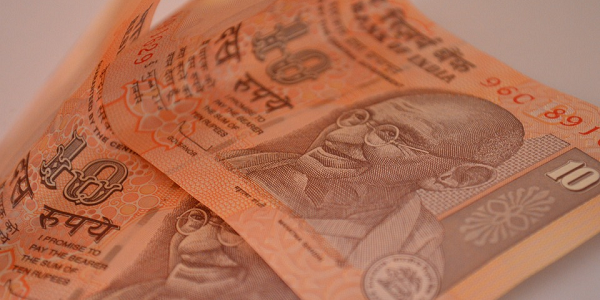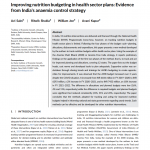
Corruption, Hardly ‘Petty’
3 May 2019
The daily experiences of corruption that people suffer in their transactions with the government, is often termed ‘Petty’ corruption. It is anything but that. While each bribe, in relative terms may be a small amount, the multitude of such transactions that happen daily results in a huge transfer of financial resources to a few frontline service providers who are the face of the government, as far as the large majority of the people are concerned.
Many departments offer government services ranging from certification, licencing, collection of bills, disbursal of subsidies, registering of complaints, redressal of grievances and so on, to ordinary people. Many of these services are in the nature of natural monopolies, none other than the government is authorised to deliver them. Many of these services are based on convoluted rules that mandate multiple back end transactions, each one of which is an alibi for the demanding and collection of bribes.
The table below gives a list, by no means a comprehensive one, of bribe prone services and transactions pertaining to a list of typical departments that operate in a city. The nature of the reason for the collection of a bribe are also listed.
Why do these bribes get paid? It ultimately boils down to citizen subjugation. When citizens do not demand public services as their entitlements and look upon them as favours dispensed from above, the tendency is for such forms of corruption to persist.
Considering the persistent nature of such forms of corruption, there is a strong school of thought that believes not only that such corruption is incurable, but that it is even beneficial in the short run, because it enables a modicum of service delivery to continue and flourish. That is a fallacy.
Pernicious petty corruption destroys the national character. As citizens face corruption at every step in their daily lives, they cultivate passive acceptance as a survival strategy. This even evolves into a perverted justification of corruption as an essential thing; something necessary to keep the wheels of the economy moving. This attitude destroys the quality of citizenship. People who tolerate corruption also tolerate injustice. They accept bad quality of government services. They look away when their environment is plundered. They tolerate, even collaborate, in the debilitating of a nation.
Thus the tackling of petty corruption is not merely a way of making services cheaper in real terms to citizens, it is a very important step in building our national character. How can citizens, both as a group and as individuals become intolerant of corruption and be able to successfully resist demands for bribes? More of that, in my next blog.
The first part of this blog series can be found here.






Raghu
I agree with you. What you have described as petty corruption affects the citizens most pervasively and therefore is most important to tackle. I also liked your linking it with building of national character. I always felt like this.